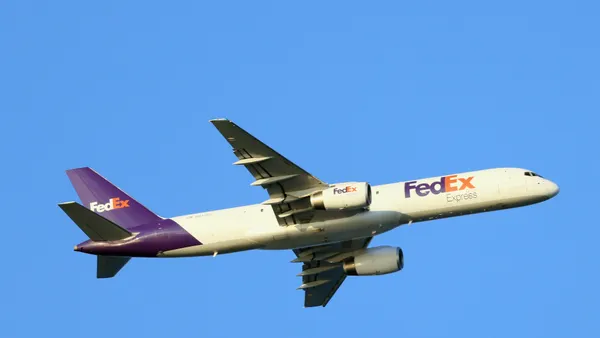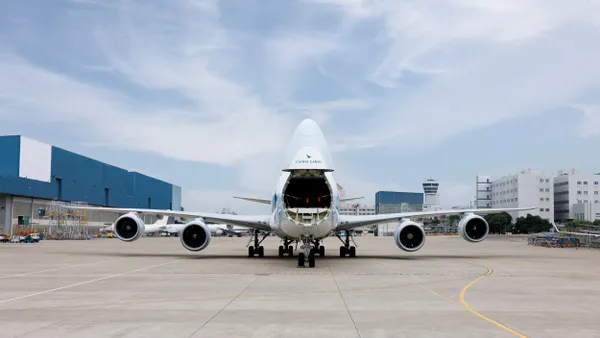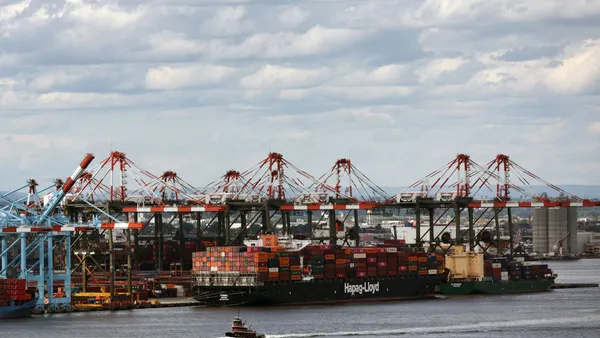Dive Brief:
- Multiple brands plan to continue spending on airfreight at elevated levels to meet demand for the remainder of their fiscal years as supply chain disruptions persist, according to companies' earnings calls.
- Lululemon and Figs expect an increased reliance on airfreight to have a negative impact on their gross margins in fiscal 2022. Outdoor lifestyle brand Roots expects its direct-to-consumer margins to be pressured by higher airfreight costs.
- "Given some closures in China, we have had to airfreight a bit more products for Q3 of this year than we did last year," Roots CFO Mona Kennedy said during a June earnings call. "So, if you are comparing to last year, you will see more pressure in Q3, but you will see equal pressures in Q4 as well."
Dive Insight:
Shippers call on airfreight when speed is critical, and brands are pushing to stock up their shelves for the latter half of the year in an environment full of supply chain roadblocks.
This trend has been happening in stretches throughout the COVID-19 pandemic, with companies assuring investors the cost pressures are temporary. Figs expected to reduce its reliance on airfreight this year versus the end of 2021, CEO Trina Spear said on a May earnings call. But the healthcare apparel brand has "seen an intense and persistent surge in the volatility of ocean transit times for receiving our products" since early March as carriers rerouted vessels "unexpectedly" during transit.
"Shipping times began to vary, ranging from as fast as 30 days to upwards of 120 days, and it's difficult to see this unpredictability ending soon," Spear said.
In response to this uncertainty, Figs plans to "significantly increase" its use of airfreight while also adjusting its product launch calendar to more reliably deliver products, Spear added.
Much of what the company plans to ship via air for the remainder of the year is connected to product launches that deliver high levels of customer engagement for a brief period of time, CFO Daniella Turenshine said.
"It's not really about increasing weeks of supply," Turenshine said. "It's more about being really [decisive] in our air choices and making sure that we are doing what we need to do to have the product here to meet the demand and to sustain our launch calendar and to grow at the rates in our outlook."
Lululemon revised its financial outlook for 2022 to include added airfreight costs, as the company is investing more in air shipping to avoid lengthy ocean lead times and capacity constraints. Supply chain pressures are expected to be with Lululemon for the remainder of the year, CFO Meghan Frank said on an earnings call, adding that it's "too early to say on 2023 how we see that moderating."
Any increase in brands' air cargo spending hasn't yet led to a surge in demand — May volumes fell 8% YoY as capacity to and from Asia remains strained, according to Clive Data Services.
June has also been "quite a slow month" as many factories in China haven't ramped up to full production yet, stymieing demand, Flexport EVP of Air Strategy and Carrier Development Neel Jones Shah said on a June 14 webinar.
That could change quickly. Flexport expects there is pent up demand for orders that haven't been placed in the past three months due to China's lockdowns, and shippers will be looking to avoid ocean congestion and mitigate their exposure to risks from West Coast port labor contract negotiations, Shah added.
"Airfreight will definitely be a beneficiary of that, but to what extent still remains to be seen," Shah said.















